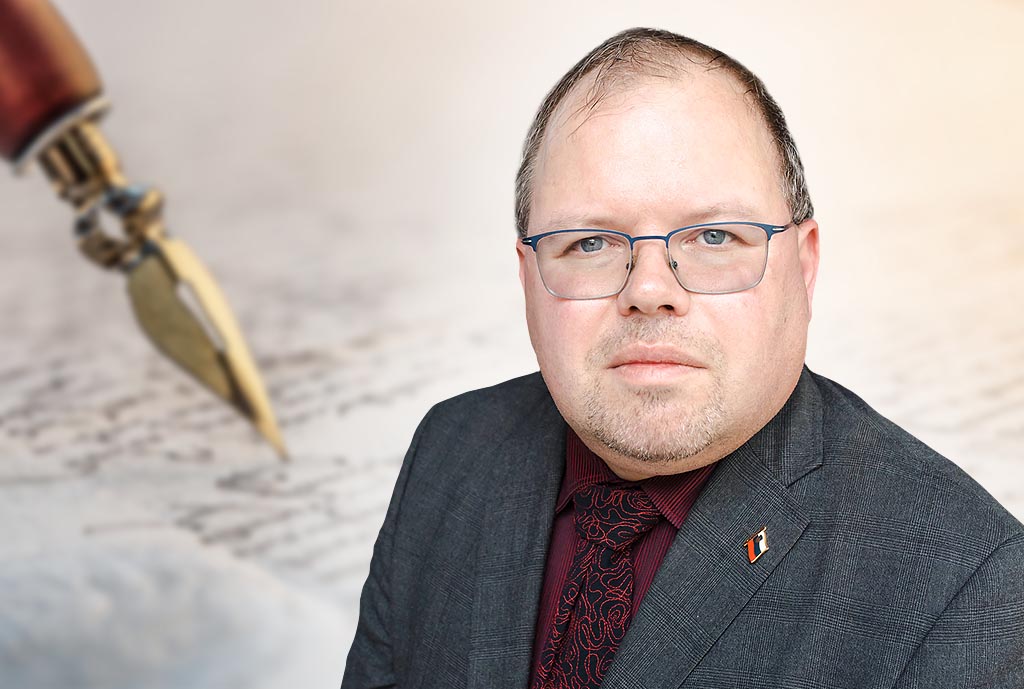By: Gašper Blažič
With this year’s Independence Day, Slovenia has entered its “Christ’s years”. One could say that with a significant amount of bitterness. When I observed the buildings of state institutions in the centre of Ljubljana on June 13th this year, I saw for myself how much we are truly a “sovereign state of the Slovenian nation”. Some buildings display Palestinian flags, while others display rainbow flags. This essentially means that the territory has been conquered by LGBTQ+ fighters, that is, the woke agenda, while Prime Minister Golob collects parachutes for dropping aid into an enclave governed by draconian Islamist laws. From the pre-election campaign before the European elections, which also gave Slovenia at least a little hope for a shift towards normality, we woke up to the harsh “Golobist” everyday life, causing the father of Slovenian statehood, Jože Pučnik, to turn in his grave. An everyday life in which doctors and officials have been on strike for several months without anyone even listening to them.
Recently, I accidentally found a copy of the Jesenice steelworks newsletter “Železar” dated June 8th, 1989, on the X network, exactly one month after the declaration of the May Declaration, which demanded a “sovereign state of the Slovenian nation”. The front page of this newsletter was dedicated to the visit of the President of the Central Committee of the League of Communists of Yugoslavia, Milan Kučan, to the steelworks management, summarising Kučan’s speech. The following sentence caught my eye: “To renounce Yugoslavia means to renounce our own country.” As if Yugoslavia was the only possible option, the only possible country for Slovenes! Well, you might say, this is something everyone already knows, the thing about Kučan’s “intimate option”, that is. But things are more complex. During the Slovenian War, in one of the evening television shows – I believe it was on Friday, June 28th, 1991, just before the late-night meeting of the then European troika (De Michelis, Poos, van der Broek) in Zagreb with the leaderships of Slovenia and Croatia – Foreign Minister Dimitrij Rupel, who was also leaving for Zagreb, said: “I think that from this war onwards, Yugoslavia is no longer a real option for Slovenes…” Rupel was commenting on the West’s efforts, which were diplomatically directed towards the fight to preserve Yugoslavia in one form or another. At one of the press conferences in Cankar Hall after returning from Zagreb, the President of the Presidency of the Republic of Slovenia, Kučan (visibly tired), said: “After this war, nothing will be the same as it was before. Nothing.” He did not explain what he specifically meant by that.
It is telling that the same Kučan, after more than three decades, is now reviving the story of the agreement to divide Bosnia and Herzegovina, allegedly secretly agreed upon by Croatian President Franjo Tuđman and his Serbian counterpart Slobodan Milošević. In reality, this is just an attempt to create a smokescreen following the recent chilling revelation of how significant Serbia’s influence is on Slovenian politics, particularly through Zoran Janković, an influential political figure to whom Robert Golob also bows. It is not insignificant that it was this same Janković who was essentially “made” by Milan Kučan. This also explains why Janković, despite his notorious mafia reputation, remains untouchable to law enforcement. He is not just any bureaucrat but a key person pushing Slovenia into increasing political dependence on Serbia. Janković is Vučić’s vassal, and Golob is Janković’s vassal, using terminology from the feudalism so despised by the communists. Compared to this, the otherwise unpleasant influence of Brussels bureaucracy on Slovenia seems almost like child’s play.
You might ask how this is possible, considering that in the late eighties, Kučan was confronting Milošević and his Greater Serbian idea. Well, one thing is the public performance, and another is… I would not like to broadly repeat already known facts about secret agreements between Kučan and Milošević, such as the centralisation of the banking system in the disintegrating SFRY. I would only mention the record of Ivan Borštner, one of the famous defendants in the trial against the Four, in the book “Seven Years Later”, where he cites the discontent of Yugoslav army circles with the visits of then-Republic Presidency President (in 1987 and 1988) France Popit to military barracks. Popit was a much bigger thorn in the side of army circles than Kučan, who was favourable to Belgrade. Perhaps this also explains why Slovenia, after 33 years of statehood, is practically a modern “Belgrade pashaluk”.
